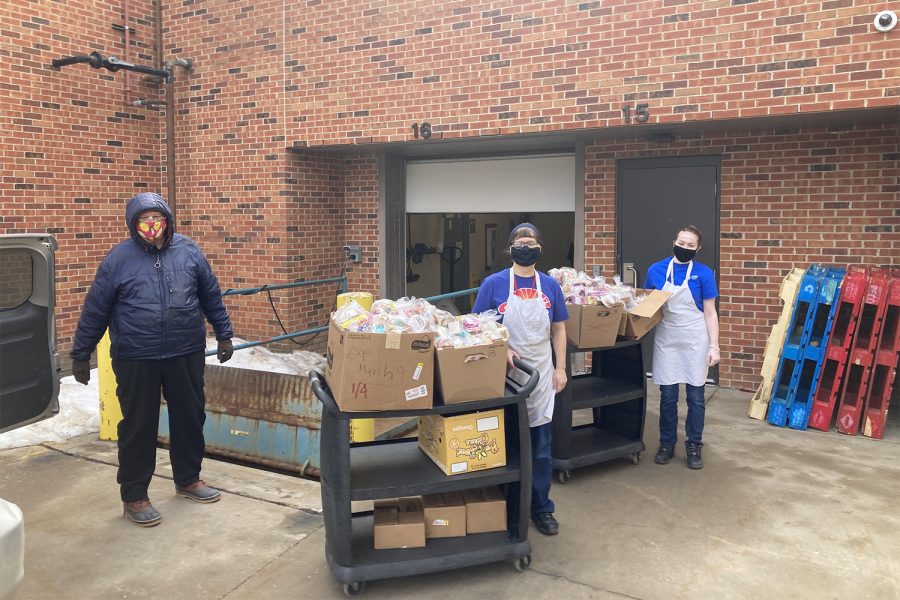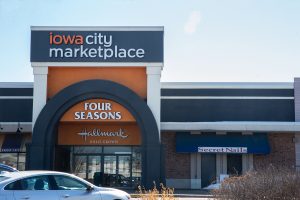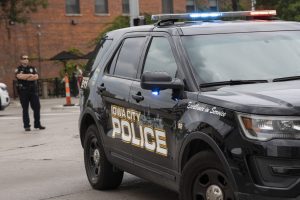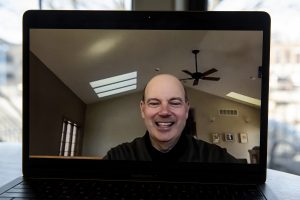Community volunteers deliver meals to remote Iowa City students
Iowa City Community Schools District continues to see students and families participating in virtual learning opportunities. However, some of these families operating remotely are still in need of school resources such as multiple nutritious meals, which creates the need for meal delivery services for families with limited mobility.
Photo of volunteers at CIty High kitchen.
March 4, 2021
With COVID-19 exacerbating the issue of food insecurity in Iowa City, there has been more attention drawn toward the number of families that are dependent on school resources provided to all students, such as nutritious meals.
Iowa City Community Schools District is currently offering both 100 percent in-person learning and 100 percent virtual learning, with the hybrid learning option recently eliminated after the state Legislature required all schools to offer an in-person learning option.
The district provides the option for grab and go meals, where families who are participating in virtual learning can pick up pre-packaged breakfasts and lunches at designated district locations.
District Nutrition Services Director Alison Demory said the district is able to provide these meals to families due to federal funding from the USDA and several government waivers created to allow this food distribution.
This option has provided a way for this crucial school resource to continue to reach families in need.
Demory said the district is currently distributing an average of 1,100 packages per day, totaling to 2,200 meals per day.
RELATED: Iowa City food pantries adjust services to combat food insecurity during COVID-19
Iowa Valley Habitat for Humanity volunteer Nuno Solano has helped South District Neighborhood Association President Angie Jordan initiate a project that recruits volunteers to pick up these pre-packaged meals and deliver them to south district students participating in virtual learning.
Solano said Jordan began delivering the meals to families herself, but as the demand grew, Solano and Jordan believed recruiting volunteers to help with this would be beneficial.
“She realized that [school provided meals] were a need for many residents and children studying from home but they didn’t have the mobility to go pick up the lunches directly,” Solano said. “She listened to the residents and this idea came up that she would go straight to Southeast Junior High, pick up lunches there and then she would drive the lunches herself in her car [to deliver to families].”
Solano said Jordan started out serving approximately 10 families and 26 meals in January this year, and since she asked him to coordinate this project, this service has grown to 45 families and 120 meals.
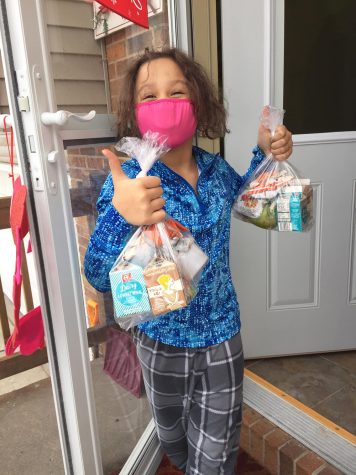
Solano said this service has also grown to be a daily operation.
Demory said throughout this school year, the district has seen various partners such as nonprofits, neighborhood organizations, and community volunteers become more involved in the grab and go meal distribution process.
“With the current waivers that the government has provided, volunteers can pick up meals for families,” Demory said. “So, that allows other flexibility for families. We have different groups that pick up meals for different neighborhoods and I think there’s some families that take turns picking up for each other and just a variety of situations like that.”
Solano said working at Habitat for Humanity gives him access to resources that make it easier to recruit volunteers and initiate community organizing to assist projects.
The United Way of Johnson and Washington Counties is an organization Solano was able to connect with to recruit volunteers.
RELATED: ICCSD continues to provide free meals, technology and internet services to families
The United Way of Johnson and Washington Counties’ Vice President for Impact and Engagement Patti Fields said recruiting volunteers during this time with COVID-19 has not been difficult, just different from years past.
Fields said there are a large number of volunteers interested in this delivery project who want to help families receive necessary school resources, even while learning remotely.
Fields said this increased interest and engagement is promising, and there will continue to be a need for volunteers within the community.
“Even as we have optimism and hope for things happening with vaccines, there’s still going to be a need for volunteers to help organizations serve people who have had a very difficult time, and who have seen their needs increase,” Fields said.
Solano said this delivery service will continue to operate for the remainder of the school year, and as of right now, most likely into the summer months as ICCSD will continue to provide free meals for families.
Fields said community organizing such as this delivery project are examples of how Iowa City residents have come together during a difficult time to help one another.
“The good news is, there has also been a lot of collaborative problem solving happening,” Fields said. “If we can look at some positives that have happened during this time, I think that’s one of the really good success stories for our community.”



